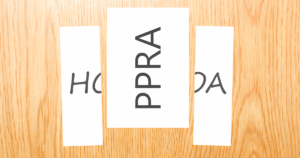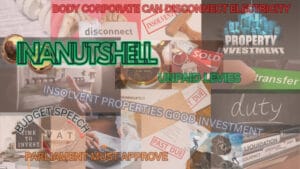South Africa could be on the verge of a cyclical economic recovery, investors say
Reza Hendrickse, portfolio manager at PPS Investments, shares the following:
Economic growth remains below potential, but domestic economic growth will accelerate. Also, electricity supply has stabilised. South Africa’s Treasury revised its growth forecast for the next three years to an average of 1.6%, up from the 1.4% average expected at the 2023 Budget Review.
With inflation under control, the Reserve Bank could soon start to lower consumers’ debt serving costs, and when interest rates eventually come down, boosts disposable income.
A further boost to confidence in the economy is the stronger rand.
Another leading investment firm, Investec, says that in addition to the load shedding reprieve, the GNU has lifted the potential for a stronger economic outlook, while reducing fiscal risk.
This should prove positive for investment sentiment, money markets and the local currency.
Read the full article:
Timing the market - do you know when you should buy or sell property?
Article by Dhivana Rajgopaul, digital journalist, IOL Business
Homeowners not under pressure to sell, can time the sale of their property which could have an impact on the final sale price, according to Cobus Odendaal, CEO at Lew Geffen Sotheby’s International Realty in Johannesburg and Randburg. Understanding market dynamics help you maximise your advantage in real estate transactions. Buyers as well as sellers must remember that the property market is cyclical and influenced by various factors. Timing their entry or exit strategically can offer various advantages, he added.
Read the full article:
Do you know who owns your home — you or the bank?
Article by Xolile Mtembu, digital journalist, IOL News
Considering a large proportion of homes are financed by the country’s largest banks, the popular internet discussion about who owns a mortgaged home in South Africa still persists.
Some contend that the bank owns your property, but Gavin Lomberg, the chief executive of ooba property Loans, settled the debate by asserting that the truth resides in two key points:
- The authority that you elect to take on as soon as the bond is transferred into your name.
- The all-important title deed.
As a homeowner, important decisions related to your home are dictated by you – not the bank,” said Lomberg.
“You have the power to decide whether you wish to renovate, extend, decorate, paint, update the landscaping, lease out the property or even sell. You are also responsible for the maintenance, repairs and general upkeep of the property.”
He went on to say that if you sold, the initial proceeds would be used to pay down any remaining balance on your home loan.
What is a title deed?
It serves as an essential legal document that establishes who owns a property (or piece of land).
When you purchase a property, a conveyancing attorney is appointed to transfer the title deed into your name, and you will need to cover the relevant fees related to the transfer. The transfer process takes about 3 months. After the bond registration and transfer process, the title document will be recorded at the Deeds Office.
If I default on my repayments – is the house still mine?
Misconception from the repossession process, allowing a bank to seize and sell your asset if you fail to make your house loan payment, leads to the question of “who owns your property”. Lomberg emphasised that the repossession process causes a legal and administrative headache for banks and is thus viewed as a last resort, which means that they are often willing to work with the homeowner to find a way to help them repay their debt over time.
Options to avoid repossession:
Modifying or restructuring your debt.
Renegotiating your home loan terms.
Ask for a payment holiday.
Rearranging your repayment agreement.
Selling your house.
Accessing Credit Insurance
Read the article:
Tax costs when you are buying property
Article by Dhivana Rajgopaul
When buying property, you will have to pay tax at different stages of ownership. Renier Kriek, managing director at Sentinel Homes, said owners must be aware of tax obligations and plan accordingly. When buying, you will pay either VAT or transfer duty, not both.
VAT:
With a new property VAT is included in the purchase price and covered by your loan. When a VAT-registered business sells a property, VAT is charged, generally as a new residential development.
Transfer duty:
Payable when buying an existing residential property from the owner.
Municipal Taxes:
Payable for as long as you are the owner of the property. In addition to this also water, electricity and levies.
Capital gains tax (CGT):
Payable when selling your property. It is calculated on the difference between what you have paid for the property and what it is selling for. If it is your primary residence, the first R2 mil of the profit is tax free. It becomes more complicated when you have rented the property out, or a part of it was used for business.
Estate duty:
Payable on the value of your property when you pass away. The property may be sold if tax obligations cannot be covered. To protect the property against this you can take out extra life insurance or sell the property to a planning vehicle like a trust.
Provisional tax:
Payable when earning an income from another source like renting out the property.
Plan property purchases around financing and tax, especially for property values exceeding R2 mil, said Kriek.
Read the full article here:
“Take note that the content above is merely set out as the opinion of the author and his interpretation of the relevant legislation. It will not be regarded as a legal opinion and nor does the writer intend it to be. It is imperative that any reader obtain his own legal opinion relating to any of the content above and will the writer hereof or his employer not be held responsible for any of the content of this article.”



